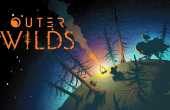AnnieEM
A writer interested mostly in video games and fantasy novels.
Contributor II
- Plebian Penman
- Lurker
- Pssst
- Sharp-Eyed Citizen
- 8-bit Hero
- Article of the Month
- ?
- Articles
3 - Featured
3 - Comments
15
- Ext. Comments
13 - Processed
14 - Revisions
7
- Topics
6 - Topics Taken
1 - Notes
17
- Topics Proc.
37 - Topics Rev.
18
- Points
1229 - Rank
120 - Score
601
Latest Articles
Latest Topics
Replayability in games: is it really necessary?Replayability is a measurement of how much fun a game is to play over and over again – how much new content there will be on each playthrough, how much you can vary your playstyle, how many different endings or paths the different quests/stories have for you to explore each time. It is something it is generally considered good for a game to have, especially in certain genres. Many players want to be able to play their favourite games again and again, but with enough variation that it is never boring. However, replayability is something that cannot be (and isn't) pursued in every game. Many story focused games are not particularly replayable, as their goal is to focus on telling one very good or in-depth story – and to focus on replayability could take away from that. There is also the fact that to make a game very replayable takes a lot of time and effort to code and design all the different playstyles/endings/quests etc. This is time and effort that may be needed elsewhere or would possibly be better spent polishing the main game. Not everyone plays again and again after all, so is it really so crucial to ensure that every single playthrough is entirely unique? This article would delve into the concept of replayability, exploring whether it is truly important for games to be infinitely replayable or more important to create a good experience the first time round.
|
Time-out features in video gamesVideo games can often be addicting, and it can be very tempting to play for long periods of time without stopping. To stop this, some games (mostly those designed with kids and families in mind) will implement features designed to stop players from going overboard and playing for too long. This can be a pop-up message noting that you've played for quite a while and should take a break (such as those seen in Wii games like Wii Sports) or a feature integrated into the game itself (such as the iconic phone call from your dad in Earthbound).
|
The rise and fall of the turn based rpgTurn based rpgs were at one point the height of video games. Dragon Quest and Final Fantasy are some of the most well known, as their success lead to huge franchises that continue today, but there were also many more inspired by them or experimenting on their format.
|
The effect of streaming and let's plays on the video game industryThe gaming community, from twitch streamers to youtube let's players, is synonymous with video games at large.
|
Modernizing Old StoriesIn the new Death on the Nile (adapted from Agatha Christie's book), they made a number of changes to ensure the work was better appreciated by a modern audience. This included changing certain motives and secrets for characters (having a former kleptomaniac instead have a secret lover, for example) and adding a romantic subplot for the main character.
|
The dog dies: use of animal death as an emotional pull in filmA number of movies, tv shows, and other pieces of fiction use animal death for one main reason. Generally, it's to show a particular character is evil, and to pull on the viewer's heartstrings by showing the death of an innocent creature (most often, a dog). This technique is often very effective, and many viewers feel very emotional at the death of animals on screen, to the point that sites such as 'Does the Dog Die' exist simply to warn viewers who find animal death (among other things) to be too much. But due to being effective, some find it over-used, a bit of a cliche. So, why is it used so often? Is it just so effective that it's worth the cries of unoriginality? Is it just such a simple way to portray a character's cruelty? And why is it so effective, anyway? Why is the death of an animal more effective than that of say, a child?
|
Latest Comments
| "Darkest Dungeon": The weight of legacy | |
I hadn’t heard of this movie, but now I’m definitely interested in watching it. Being on the internet, I have definitely seen North Korea addressed in strange ways – one that stands out in particular was when pictures were published showing people in NK during their day to day lives, some looking happy and most looking fairly normal, hardly the doom-and-gloom some people seem to indicate. Some people accused them of being actors, pretending that things were good there to create an illusion to the rest of the world. And sure, these pictures didn’t show everything, but this was instead of the more likely explanation – that even though there are some terrible things happening in NK, many people are still able to go on with their lives and at times be happy. | Loyal Citizens of Pyongyang in Seoul: Understanding Enemies of the Empire |
I really liked this article – censorship is and always has been such an important topic. I knew about the Minecraft ‘library’, but hadn’t heard about some of these other examples (like the rice/bunny ‘mi tu’ idea). | The Minecraft Loophole: Modern Subversion of Censorship |
Oh mostly just takes I’ve seen a few times online – said by people with little real knowledge, I have a hunch. Doesn’t make it feel any less incorrect, but hardly anything huge. | Lovecraft & Racism |
I must admit I felt some trepidation reading the title of this article, as there have been a lot of takes I really don’t agree with on this subject – saying that Lovecraft wasn’t actually really that bad, or that his views were perfectly normal in the time period (and as such should be excused, I guess?). But this article handled that subject quite well, and I do agree that it’s good to note that he’s far from the only writer to include his bigotry in his work. Of course, some of his work is more obviously bigoted or inspired by his bigotry than some other writers. | Lovecraft & Racism |
I remember seeing one analysis that posited that a lot of the best horror games are short for that reason – the longer it is, the more likely the horrors will lose their impact. Varying things up (in later stages of the game or in sequels) can definitely help prevent this as you’ve said. | Analog Horror: Analyzing an Eerily Nostalgic Genre |
Analog horror is definitely an interesting topic, and I’m glad to see an article on it. Good stuff! | Analog Horror: Analyzing an Eerily Nostalgic Genre |
I definitely think the demographic part is an important point to raise. After all, a lot of what becomes popular (here in the West, but in Japan as well) is shonen and seinen, and they tend to be watched by a lot of women rather than just men. As a female viewer myself, I tend to watch more shonen/seinen than shojo because a lot of the shojo that gets brought here and becomes popular is romance (a genre I’m not super into). While these labels can be helpful in some circumstances, the sheer variety in what is considered ‘shonen’ or ‘shojo’, and the fact that some pieces are hard to put in these categories, means that at the very least more classification is needed. | Marketing vs. Genre in Manga - How They Can Get Confused |



I played Darkest Dungeon a year or two back, and while I found it quite challenging it was really interesting. I found the fact that the game had the ancestor commenting over your shoulder through the entire experience was a really great (and fun!) choice – it really makes you feel that he’s not just some distant man who sent you a letter and then died. He’s still with you, watching and commenting on everything you do, making sure you carry out his will.
Whether you interpret his comments as diegetic or non-diegetic, it does come as a constant reminder, especially as you learn more about him through his pre-boss monologues. Great article topic for sure!